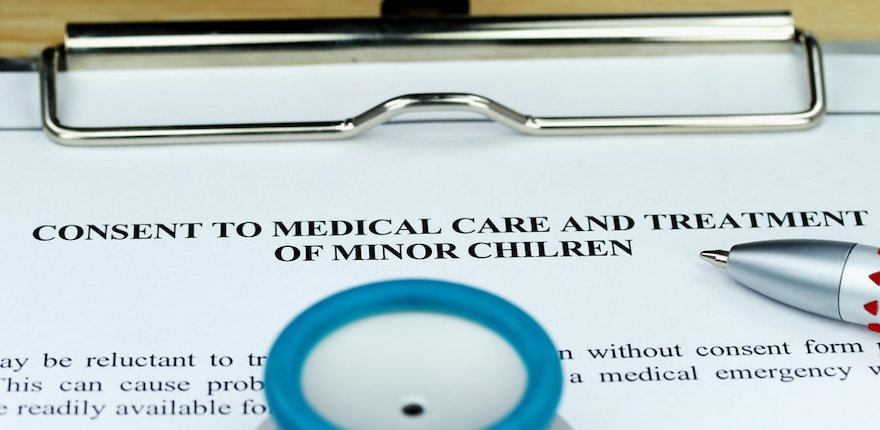Children are magnets for accidents. If your kids get hurt when you are not around, how can you ensure they receive proper medical attention? Having a prepared emergency medical consent form can eliminate any worry about whether your child’s treatment conforms to your wishes. By reading this article, you will learn about the law governing medical care for minors. We will also discuss the benefits of prepared medical consent forms and who can grant consent to treat juveniles.
Understanding Minor Medical Care and Consent Forms
Unless your child arrives at the emergency room with life-threatening injuries, a doctor may withhold care until receiving parental consent. For example, if your babysitter takes a child to the hospital, they may only diagnose the injury, especially if treatment would require administering medication such as pain killers.
A parental medical consent functions as a power of attorney that, when correctly filled out, will ensure your wishes are carried out even when you are not present. You should consider updating the medical consent frequently until your minor child reaches the age of majority.
Age of Consent for Medical Care
Minor medical consent is governed by state laws that differ on when a child is allowed to consent to medical treatment themself. Except in the situation of an “emancipated minor,” which likely does not apply to you, the goal is to be certain a minor understands what they are allowing.
Medical treatment authorization ages for minors range from 14 years old in Alabama to 18 in other states. While California and Oregon allow those aged 15 or older to consent to their own medical treatment, other states have a hard line that those younger than 18 cannot authorize treatment without caregiver consent. Therefore, the need for a minor medical consent form will depend on where you live and your kids' ages.
Read more:[Can Minors Receive Medical Care Without Parental Consent?(https://www.lawdistrict.com/articles/can-minors-receive-medical-care-without-parental-consent)
Why Is a Child Medical Consent Form Important?
As mentioned above, a hospital may not offer treatment to a minor outside of life-threatening situations without proper parental medical consent. For example, if your child shows up at the ER with a sprained wrist, doctors may perform x-rays to determine the injury's extent. However, if a guardian is not there, they may choose not to give the minor painkillers.
A child medical release form transfers the authority to grant consent from you as a parent to another caregiver. If your kids spend a lot of time outside your care, consider having correctly filled out medical treatment authorizations. Make sure caregivers, such as grandparents, babysitters, or schools, know where the forms are so that they can present them upon reaching the doctor’s office.
Get Your Child Medical Consent
Child Medical Care in an Emergency
Before any emergency situations arise, be proactive and fill out medical release forms. LawDistrict has professional templates to ensure that your release is valid and covers all the necessary information.


